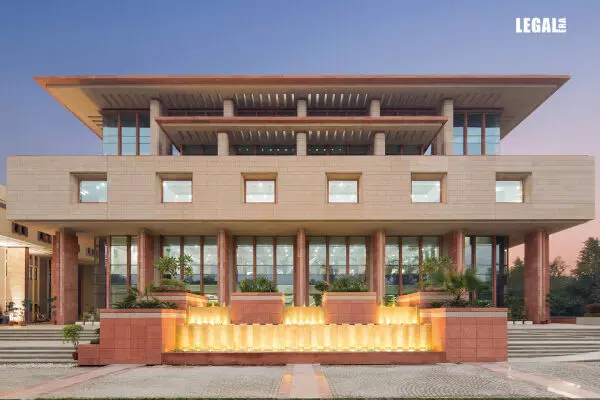- Home
- News
- Articles+
- Aerospace
- Artificial Intelligence
- Agriculture
- Alternate Dispute Resolution
- Arbitration & Mediation
- Banking and Finance
- Bankruptcy
- Book Review
- Bribery & Corruption
- Commercial Litigation
- Competition Law
- Conference Reports
- Consumer Products
- Contract
- Corporate Governance
- Corporate Law
- Covid-19
- Cryptocurrency
- Cybersecurity
- Data Protection
- Defence
- Digital Economy
- E-commerce
- Employment Law
- Energy and Natural Resources
- Entertainment and Sports Law
- Environmental Law
- Environmental, Social, and Governance
- Foreign Direct Investment
- Food and Beverage
- Gaming
- Health Care
- IBC Diaries
- In Focus
- Inclusion & Diversity
- Insurance Law
- Intellectual Property
- International Law
- IP & Tech Era
- Know the Law
- Labour Laws
- Law & Policy and Regulation
- Litigation
- Litigation Funding
- Manufacturing
- Mergers & Acquisitions
- NFTs
- Privacy
- Private Equity
- Project Finance
- Real Estate
- Risk and Compliance
- Student Corner
- Take On Board
- Tax
- Technology Media and Telecom
- Tributes
- Viewpoint
- Zoom In
- Law Firms
- In-House
- Rankings
- E-Magazine
- Legal Era TV
- Events
- Middle East
- Africa
- News
- Articles
- Aerospace
- Artificial Intelligence
- Agriculture
- Alternate Dispute Resolution
- Arbitration & Mediation
- Banking and Finance
- Bankruptcy
- Book Review
- Bribery & Corruption
- Commercial Litigation
- Competition Law
- Conference Reports
- Consumer Products
- Contract
- Corporate Governance
- Corporate Law
- Covid-19
- Cryptocurrency
- Cybersecurity
- Data Protection
- Defence
- Digital Economy
- E-commerce
- Employment Law
- Energy and Natural Resources
- Entertainment and Sports Law
- Environmental Law
- Environmental, Social, and Governance
- Foreign Direct Investment
- Food and Beverage
- Gaming
- Health Care
- IBC Diaries
- In Focus
- Inclusion & Diversity
- Insurance Law
- Intellectual Property
- International Law
- IP & Tech Era
- Know the Law
- Labour Laws
- Law & Policy and Regulation
- Litigation
- Litigation Funding
- Manufacturing
- Mergers & Acquisitions
- NFTs
- Privacy
- Private Equity
- Project Finance
- Real Estate
- Risk and Compliance
- Student Corner
- Take On Board
- Tax
- Technology Media and Telecom
- Tributes
- Viewpoint
- Zoom In
- Law Firms
- In-House
- Rankings
- E-Magazine
- Legal Era TV
- Events
- Middle East
- Africa
Delhi High Court Approves Settlement Terms Defined For Ibrutinib Patent

Delhi High Court Approves Settlement Terms Defined For Ibrutinib Patent
Introduction
The Delhi High Court has decreed a suit in favor of Pharmaclincs LLC & Anr , a company involved in the pharmaceutical sector, against BDR Pharmaceuticals International Pvt Ltd (Emcure). The plaintiffs and defendant no. 3 jointly applied for a consent decree based on the terms of settlement under Order XXIII Rule 3 of the Code of the Civil Procedure, 1908 (CPC).
Factual Background
Pharmacyclics LLC holds the patent rights (Patent No. IN262968) for a pharmaceutical product containing Ibrutinib. The defendant no.3, Emcure, was found to be manufacturing and selling products containing Ibrutinib without authorization, specifically the brand name TYBRIVA.
Procedural Background
The case was filed by Pharmacyclics LLC before the Delhi High Court, seeking relief against the defendants for patent infringement. During the proceedings, the parties entered into a settlement agreement and filed a joint consent decree application. As per the terms of the settlement, the defendant claimed to refrain from using ibrutinib in any manner. The defendant stated that, “Emcure undertakes not to manufacture, purchase, sell, supply or in any manner commercially deal in or assist others in commercializing any product containing Ibrutinib, which is the subject matter of protection in the Suit Patent IN262968, under any brand name including TYBRIVA, as also Ibrutinib API, until expiration of the said Suit Patent.”
Issues Involved
1. Patent Infringement: Whether the defendants' actions constituted patent infringement.
2. Settlement Agreement: Whether the settlement agreement between the parties was lawful and binding.
Contentions of the Parties
Plaintiff's Contentions: The plaintiff contended that the defendants' actions constituted patent infringement and sought relief, including damages and costs. However, in view of the settlement agreement, the plaintiffs agreed to forego their claims for damages and costs against Emcure, contingent on compliance with the undertakings given by Emcure.
Defendant's Contentions: The defendant, Emcure, acknowledged the validity of Patent IN262968 and undertook to cease all infringing activities related to Ibrutinib products, including TYBRIVA. The defendant also agreed to provide detailed information and supporting documents on past purchases and sales of infringing Ibrutinib products.
Reasoning and Analysis
The court presided over a bench of Justice Saurabh Banerjee examined the terms of the settlement agreement and found them to be lawful. The court noted that the settlement agreement was duly supported by affidavits of the authorized representatives of the parties.
Final Decision
The Delhi High Court decreed the suit in terms of the settlement agreement. The court directed the registry to draw up a decree sheet accordingly, and the terms of settlement shall form a part of the decree sheet. As a result the suit was disposed of on May 13, 2025.
Law Settled
The court's decision reinforces the importance of respecting patent rights and the enforceability of settlement agreements in patent disputes. The decision highlights the court's willingness to give effect to settlement agreements between parties in patent infringement cases.
In this case the plaintiff was represented by team Anand & Anand led by Mr. Pravin Anand, Mr. Dhruv Anand, Ms. Udita Patro, Ms. Nimrat Singh, and Mr. Dhananjay Khanna, Advocates. Meanwhile, the defendant was represented by Mr. Rahul Bhujbal and Mr. Yash Raj, Advocates.




